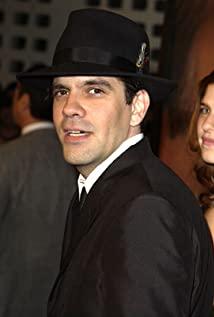Emilie Adorino tells a music-related story, and critics tend to rave about the film's music. And when we take a closer look, in addition to singing and dancing performances (such as the night performance at the beginning, the choir performance later, etc.), in the normal development of the plot, music is used: the background music of the playground, the tense music when killing Ernie , The comedy music when DeLauris was hunted down, the soundtrack of the daily life of the monastery (joyful jazz)... We can think that they are bland and do not assume a certain plot meaning, but are related to the story. It is disjointed in itself, and only reflects the weak role of setting off the atmosphere. This is not the same as "Kill Bill", Quentin Tarantino is seriously matching and even showing off his musical skills, so that the music constitutes the plot, and if you lose them, those kitchen fights, blood on the snow. will be unsightly.
By contrast, the choir's great performance is pale and isolated within the musical system of the story. Emilie Adorino does not want to pay homage to the god of music, but simply uses music to tell a story. Music is the story itself, not the plot. Music, this frivolous and lowly woman, is too easy to be used by directors of pseudo-music fans and become a tool at the mercy of others. As a result, classic tracks like "I will follow him" became the product of the composer, not the director's aesthetic structure.
We are not unfamiliar with music as a pawn that mobilizes the audience's senses and praise. However, it is debatable whether "Xiu" has reached the ideological depth of a film like "The Pianist at Sea". It is not difficult to see that there is a strong religious connotation in Xiu, and while creating comedy, it mocks religion, or all seriousness itself, intentionally or unintentionally. "Everyone wants to get closer to God, but the loud volume alone cannot lift people up." DeLauris's teaching to the choir members became the core of the ridicule - the seriousness of "Treble Bay" cannot bring you any closer to God. The essence and climax of the whole film lies in DeLaureth's transformation and sublimation of the choir. The collision of pop music and serious religion is truly wonderful, and everyone who has a slight sense of music will be shocked by the performance of the choir. However, the director's intention was not this. DeLauris used the blasphemy of popular elements of the three religions and nine-rates to attract more people to the choir. Such "corruption" is the most bitter mockery of the teachings. When the nuns screamed for being out of the convent, their human nature was revealed. The music that the movie accompanies this is impassioned, jarring and ugly.
However, this is a comedy after all, and the joke ruins all the deep meaning. "Jerusalem is boring, everyone hates me except the boy. They all say he's different, they say he's weird. We don't care what they say, for us, we need him." This is before the choir show 's rap dialogue, and then we know that "he" is God, but the plausible frivolity is so true from the mouth of a group of nuns. The two nuns had followed DeLauris into the nightclub before, no doubt it was out of pent-up curiosity. It means that the old-fashioned dean has been slapped in the face countless times. The director intends to tell us a truth beyond the jokes: in addition to rules and bad faces, there are other things in the world, including madness, warmth, and humanity. However, religion itself became a joke, and the nun was not really crazy. The director's irony did not reach the meaning of philosophy. His original intention may be some jokes with a little depth of thought. And jokes are worthless except to make the audience laugh. Of course, we can't be too harsh on a commercial film.
Whether it's music or sarcasm, DeLaurese's character takes all these tasks and becomes a distorted image of omnipotence. She is like a wise elf, even a god of wisdom. After understanding the concern that the stupid gangster "can't kill the nun", DeLauris used this tact to start praying and pretend to be a real nun. However, her image was dissolved little by little in the warm narrative of the monastery and gradually collapsed. She never came to the monastery with disdain to present a wonderful performance for the Pope, which is a process from giant to dwarf. Warmth is a vulgar and terrible thing. The nuns' adventure to rescue DeLauris is the pinnacle of warmth, but it also brings the film to the lowest point of philosophy and art.
Going back to the Chinese translation of the film, is "the nun" really "crazy"? No, revisionism is incapable of bringing about true madness. The correction brought understandable comics and consternation with a small-scale dislocation, thereby winning the attention of the world, so the film can stand up in one mundane dimension, but it can only be impotent in another spiritual dimension.
View more about Sister Act reviews











